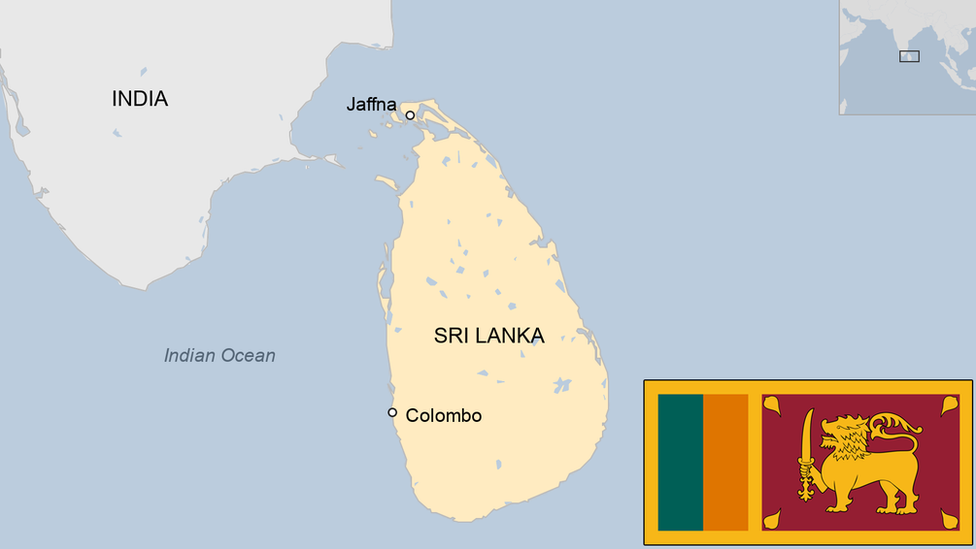Profile: Sri Lanka's Maithripala Sirisena
- Published
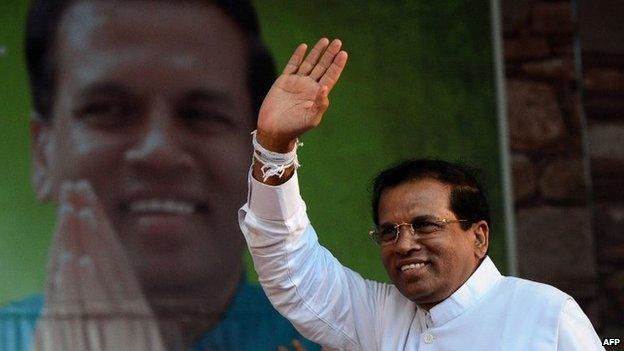
Maithripala Sirisena - friend turned foe of Mahinda Rajapaksa
Maithripala Sirisena became Sri Lanka's president after a surprise victory in elections in January.
He had been a close ally of his predecessor Mahinda Rajapaksa - until his unexpected announcement that he planned to run against him. Mr Rajapaksa's supporters were quick to label him a traitor.
Mr Sirisena was one of the most powerful men in the Sri Lanka Freedom Party before he defected along with a number of other ruling party figures.
Coming from a farming family in the Sinhalese heartland, he appealed to the same demographic as Mr Rajapaksa.
Ranged behind Mr Sirisena was a large opposition coalition that kept his name secret until the final moment.
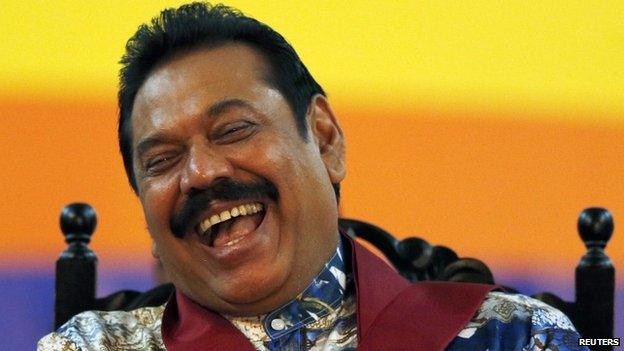
Mr Rajapaksa says he was stabbed in the back over a dinner of pancakes
The unwieldy coalition included the main opposition UNP and a former president who has apologised for the past treatment of the Tamil minority.
It also embraced a hard-line Buddhist nationalist party - a defector from the ruling coalition - that completely denies the well-attested evidence that thousands of Tamil civilians died in the final bombardments of the war.
Mr Sirisena has made no mention of minority rights or of any political solution to the island's ethnic conflict and has ruled out allowing any political leader to be prosecuted for alleged war crimes.
'Controlled by one family'
Announcing his candidacy in November 2014, he said Sri Lanka was heading towards a dictatorship and was blighted by rampant corruption and a breakdown in law and order.
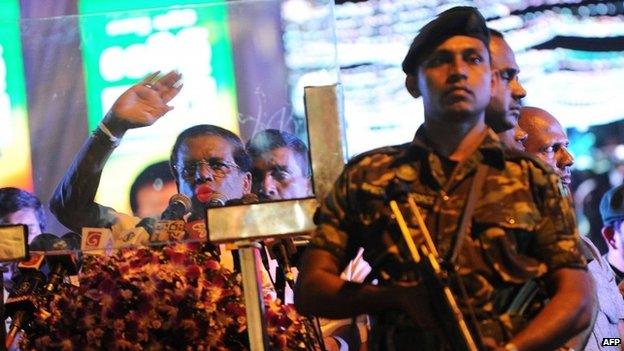
Mr Sirisena say he wants to restore law and order
"The entire economy and every aspect of society is controlled by one family," he said. Three brothers of the president and his son all occupy influential positions.
Mahinda Rajapaksa said bitterly that Mr Sirisena had defected after the two men shared a meal of the popular Sri Lankan comfort food, "hoppers" or rice pancakes.
He said his rival "eats hoppers in the night and then stabs you in the back in the morning".
Mr Sirisena later said he felt sorry for his rival during the meal but he couldn't remain with a leader "who had plundered the country, government and natural wealth".
Voter appeal
Maithripala Sirisena comes from the Sinhalese-dominated North Central Province which was seen as "border country" when the Tamil Tigers controlled the North.
Aged just 19 in 1971 he was jailed for 15 months for alleged involvement in the first insurrection by the extreme-left People's Liberation Front (JVP).
Until November 2014 he was general secretary of the Sri Lanka Freedom Party and health minister.
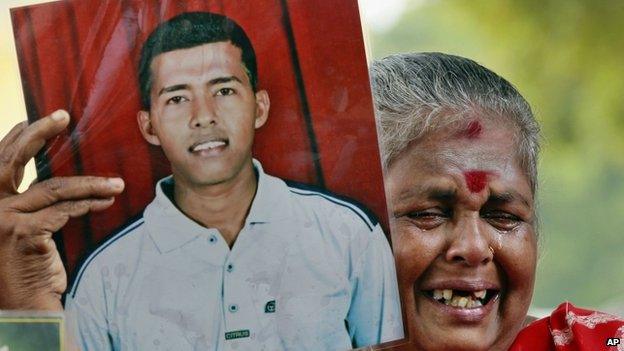
Many Tamils have felt marginalised since the end of the civil war
He was almost killed in October 2008 when the convoy he was in was attacked by a Tamil Tiger suicide bomber in a Colombo suburb. One person died.
The 63-year-old has painted himself as a clean-living champion of the rural masses. He opposes smoking and drinking alcohol.
The Sinhalese Buddhist majority accounts for 70% of Sri Lanka's 21 million people - and he looks set to secure a large share of their votes.
He also appeals to many members of Tamil, Muslim and Christian minorities who have felt increasingly marginalised under the Rajapaksa presidency.
Mr Sirisena has been quoted as saying he was unhappy with Mr Rajapaksa from 2006 onwards - but this raises the question of why he stayed so long in a government whose activities he now criticises, and of whether he is perhaps implicated in some of its excesses.
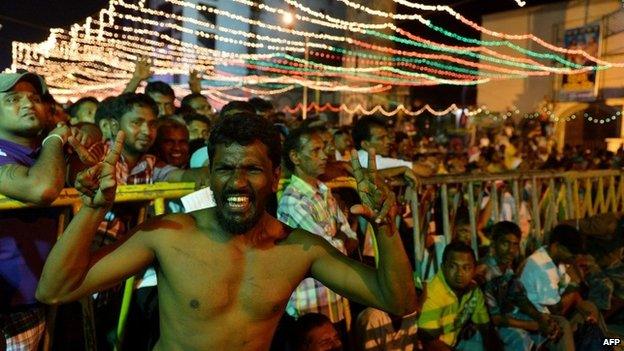
Mr Sirisena was elected with 51.3% of the vote
He says he was acting defence minister during the last two weeks of the war and has used this to try and entrench his appeal among the Sinhalese voter base.
This has played badly with some Tamils as there is still much residual support for the Tamil Tigers among that community. The main Tamil National Alliance is backing him however.
For many, though, Mr Sirisena represented the only way of unseating President Rajapaksa - and, questions aside, that was his trump card.
However, Mr Sirisena has not been able to keep the UFPA party united and many of those voted for him are upset that he gave in to pressure from within the party to allow Mr Rajapaksa run for the party in parliamentary elections.
- Published6 January 2015
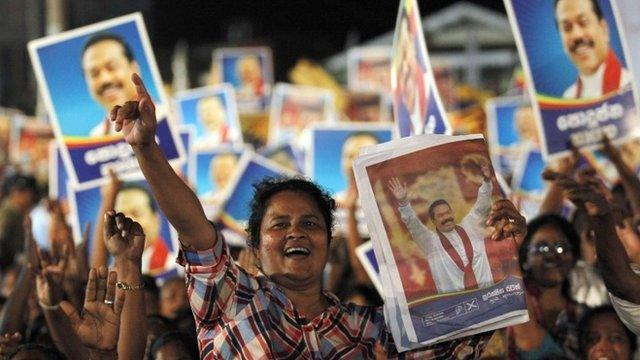
- Published2 January 2015
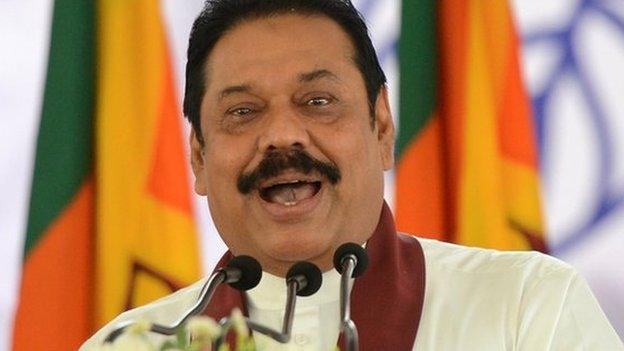
- Published3 January 2015
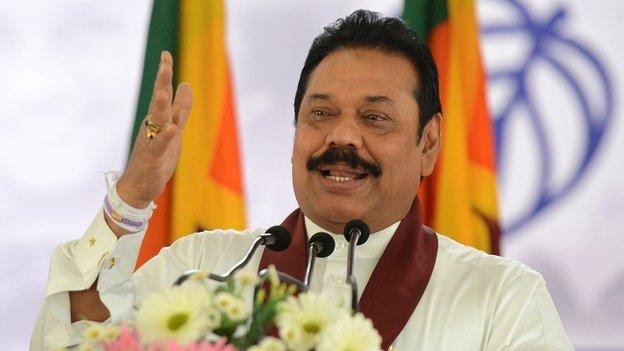
- Published21 November 2014
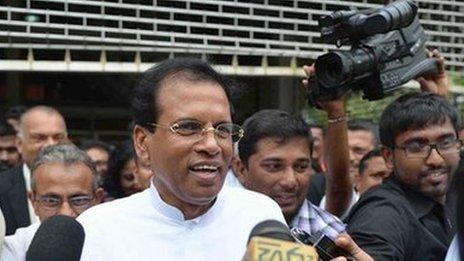
- Published11 January 2013
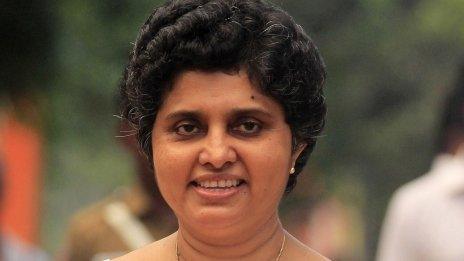
- Published9 January 2015
- Published4 October 2024
